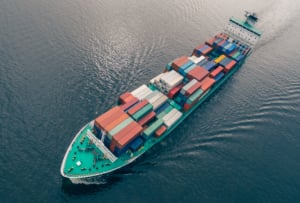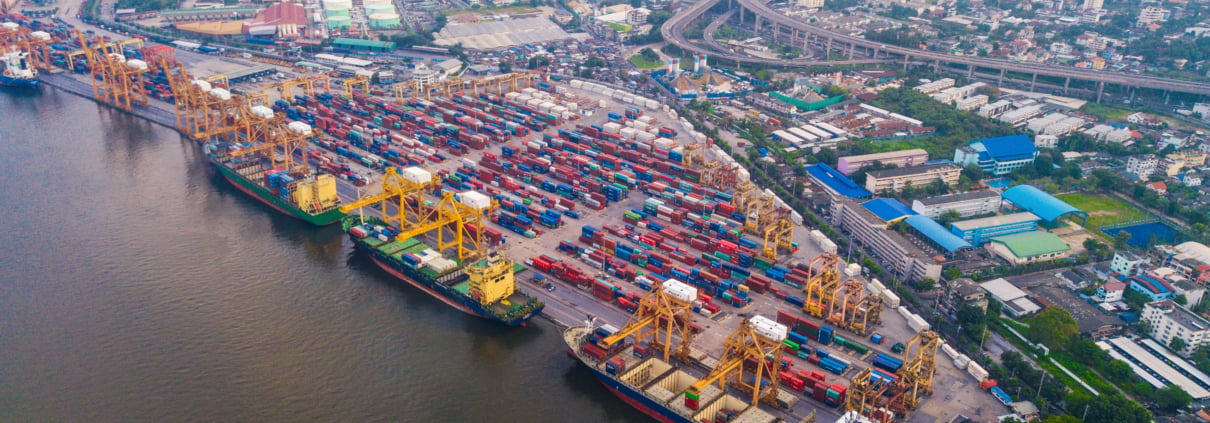Mexico Import and Export: A Comprehensive Guide
- Mexico is a leading trading country with a diversified economy
- Important international trade agreements and memberships
- Detailed customs and import regulations for imports
- Wide range of transport options
- Export promotion programmes and certification benefits
Mexico is one of the world's largest economies and a major player in international trade. The diverse economic structure includes sectors such as the automotive industry, electronics production and petrochemicals. Mexico is not only a member of the OECD, but is also represented in various international trade organisations, which gives the country a strong position in the global market.
Economic context and trade relations
Mexico's membership of the World Trade Organisation (WTO) and other international trade groups such as the Asia-Pacific Economic Cooperation (APEC) enables the country to maintain trade relations beyond the borders of South America.
Regional economic centres such as the automotive sector in Bajío and the electronics cluster in Guadalajara make a significant contribution to economic dynamism. Trade with countries such as the USA and Germany plays a central role, with Germany standing out as the most important European trading partner.
- Membership in international trade organisations strengthens Mexico's position
- Regional economic centres are crucial for economic dynamism
- Germany is an important trading partner for Mexico
Mexico's import and export dynamics
Mexico's trade balance shows an impressive variety of export goods such as vehicles, electronics and machinery, while imports mainly include machinery and plastics. Trade with the USA is particularly intensive, followed by other important partners such as Canada and China. Foreign direct investment is a key component of the Mexican economy, with Germany as one of the leading investors.
- The main exports are vehicles, electronics and machinery
- The USA is the main partner, followed by Canada and China
- Germany invests heavily in Mexico's economy
Legal framework for imports to Mexico
Importing goods into Mexico requires compliance with specific customs regulations and the payment of import duties. Additional excise duties must be paid for certain goods. Import licences and permits are mandatory, especially for sensitive goods. Binding Mexican norms and standards regulate the quality and labelling of products.
Note: Imports to Mexico are governed by strict customs regulations and standards that must be adhered to in order to ensure smooth processing.
Legal framework for exports from Mexico
Mexico's export policy is characterised by various free trade agreements. The agreement between the EU and Mexico offers duty-free benefits for industrial goods. Such agreements promote free trade and strengthen the position. Customs formalities are clearly regulated to ensure a smooth flow of goods.
Transport options for importing and exporting to Mexico
Mexico offers a wide range of transport options for international trade. The Ocean Freight is possible via central harbours such as Veracruz and Manzanillo. Air Freight offers fast and flexible solutions with major airports such as Mexico City. The Sea-Air Service combines the advantages of both types of transport for efficient logistics solutions.
Note: Mexico's transport infrastructure, including sea freight and air freight, offers flexible solutions for international trade.
Special challenges and solutions
The infrastructure in Mexico poses a challenge for importers and exporters, but well-developed transport routes facilitate transport. Security aspects are of central importance in logistics, and the use of modern technologies helps to minimise risks. Customs procedures such as temporary importation and customs warehousing offer flexible solutions for the storage and clearance of goods.
Mexico import and export: tips for successful trade transactions
Thorough market research is crucial for successful trade relations with Mexico. The choice of local partners can make a decisive contribution to overcoming market barriers. The digitalisation of processes via platforms such as VUCEM enables more efficient handling of trade formalities and helps to optimise the supply chain.
Mexico import and export: certifications and programmes
Mexico offers importers the opportunity to secure advantages through certifications such as the Esquema de Empresas Certificadas. Export promotion programmes such as IMMEX offer tax incentives and facilitate access to international markets.
Dörrenhaus - Your partner for smooth trade with Mexico

Discover the advantages of an experienced logistics service provider for your import and export to Mexico. With over 50 years of experience, Dörrenhaus offers customised solutions for all your logistics requirements. From sea freight to air freight - We guarantee efficient and cost-effective transport.
Our experts support you in complying with all legal regulations and ensure the smooth processing of your goods flows. Rely on our global network and our partnership-based relationships to make the most of your market opportunities in Mexico. Contact us today for a personalised consultation!
FAQ
What documents are required for importing to Mexico?
To import goods into Mexico, you need a commercial invoice, a movement certificate and, if necessary, import licences. Compliance with Mexican standards and a customs declaration are also essential. Make sure that all documents are filled out completely and correctly to avoid delays.
What transport options are there for importing and exporting to Mexico?
For imports and exports to Mexico Sea freight and air freight are available. The choice of transport method depends on factors such as cost, speed and type of goods. Sea freight is suitable for large volumes, while air freight offers fast delivery times.
Which free trade agreements influence trade with Mexico?
Mexico has several free trade agreements, including the agreement with the EU and the Trans-Pacific Partnership (CPTPP). These agreements offer duty-free benefits and facilitate trade. They promote the free flow of goods and strengthen the competitiveness of Mexican and international companies.



